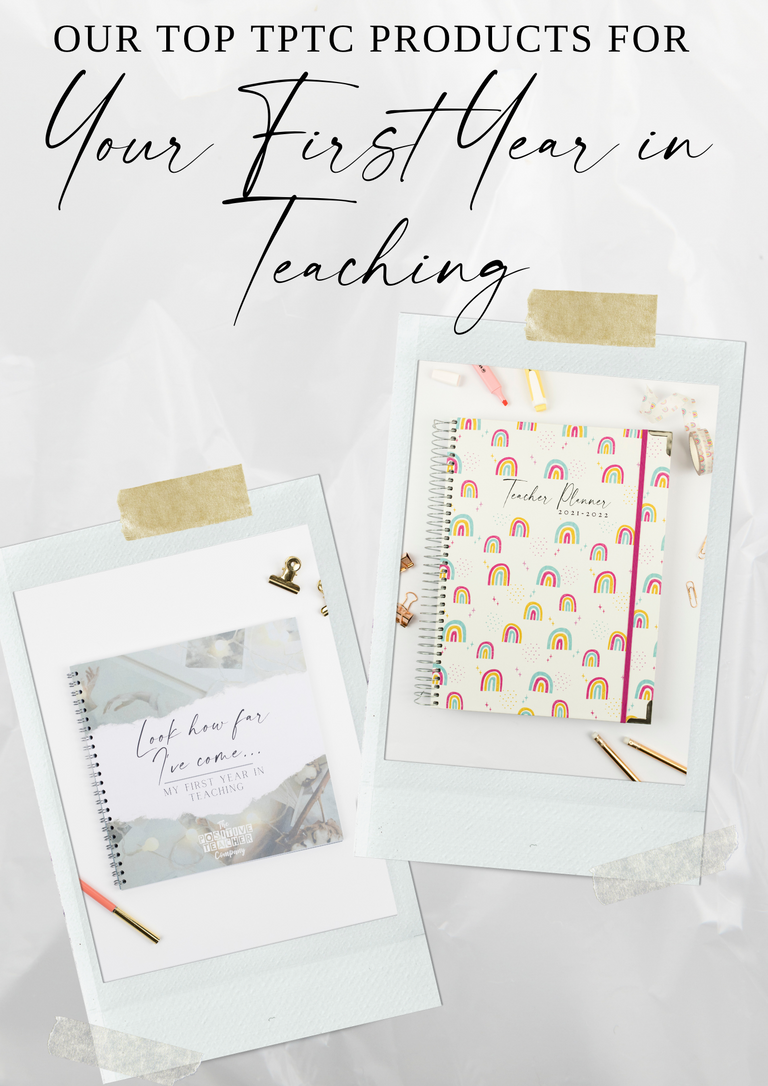When you’re training to teach, how many placements you do will depend on what route into teaching you're taking but whichever way you do it, they are key! Of course, you’ll learn a lot from lectures and seminars, but learning through observation and then doing it yourself is such a huge part of training to become a teacher. We’ve put together a few tips on how you can really get the most from your placements: staying organised, soaking up all the great examples of teaching, and facing your fears while looking after your wellbeing.
Get organised
As a trainee teacher, there’s a lot or paperwork, notes, and information to organise. You’ll need to manage all of the evidence and assignments for your course, as well as notes, ideas, and advice that you want to keep hold of for your own teaching practice. Getting things organised beforehand can really save you time during your placements. There’s a lot of papers to manage, and if you have a good filing system then you can just pop things in their place and carry on with what you’re doing. The more time you save on filing and sorting papers, the more you’ll be able to focus on your practical learning in school. We recommend preparing a couple of ring binders with some tabs, some binder paper holders (what do you call them – slippery fish or polly pockets?) and a couple of A4 envelope-type folders. It’s likely that you’ll need to show evidence for each of the 8 teacher standards, so we suggest setting up one binder with 8 tabs, one section for each. Then another binder with a few tabs ready to go for things like observations and other official papers. You can label them as you start the course and find out what you need.
Keep a note of good advice
During your placement, you’ll often get little bits of advice here and there throughout the day. Whether it’s a little behaviour management tip during a lesson or a quick remark as a teacher prepares for parents’ evening, a lot of the learning will come in little moments like this, rather than in assigned chunks of time like your lectures and seminars. We suggest having a place to pop this advice down, which could be a small A5 notepad you carry around with you to collect it all, or a set page in your trainee teacher planner. You’ll learn a lot on the go like this, so it’s great to have a place to just quickly jot it all down as you hear or see it – then later, you can go through and read it all back and make further notes if you like. But grab the chance to note it down so you don’t forget it!
Stay on schedule
Of course, we’re biased, but we highly recommend using our Teacher Training Planner to keep track of daily schedules! You could do it a couple of different ways: you could either use it to plan in advance, by writing out the timetable for the day, or you could use it as a record of what happened, by filling it in at the end of the day. Each daily page has 6 blank boxes with no timings, so they’re super flexible. You could plan out the week by looking at the school timetable, writing in what’s happening when, and using it to plan out what you need to do. If that doesn’t suit the way you work, or if plans are likely to change, then you could use it to keep a record of what you’ve done and reflect on the day, which is a key skill when learning to teach. Note down what you did in each period of the day, and add a few notes to reflect on how it went. You could also combine the two! Use the page to plan out your day and write your to do list, then at the end of the day, come back with a different coloured pen and annotate with a few notes, reflecting on if things went the way you planned and what you learned.
Observe lots of different teachers
You’ll spend most of your time on placement with your class teacher, but every teacher has a different style and will use different methods and behaviour management techniques, so it’s a good idea to try to observe lots of different teachers. Ask if you can observe the class next door, or the leader of a subject you’re interested in. It’s also good to do this as you can observe different groups of students and different year groups which also provide learning opportunities for you. Make good notes on what you see, making a note of the impact of what’s happening – why did the teacher make these choices? You can use the Observation Notes pages in our Teacher Training Planner for this! Afterwards, you can think about whether you’d like to try some of these techniques out for yourself.
Do the things that intimidate you
During your teacher training, you may come across some tasks that just really intimidate you. Maybe it’s talking to parents, a one-off task like report writing, or a particular subject you don’t like teaching. Whatever it is, don’t shy away from it! This is your chance to overcome that fear or anxiety around the task by doing it with the help and support of your mentor teacher. If you avoid the task, then the next time you have to do it you’ll be facing it alone when you get your first teaching role. Share your concerns and ask for support, you can ask for this from your class teacher or from your university mentor. They will be able to give you some guidance and maybe even help you practice! You could also shadow them and watch them do it so you feel more secure before you have a go yourself. Use the support that is there to help with the things you find difficult, so that when you have your own class you feel more ready to take it on.
Look after your mental health
It’s easier said than done, and this is something that many experienced teachers can even struggle with. There’s no one way to do it, but just go into your course being mindful of how you’re feeling and have some ideas for how you can make yourself feel relaxed after a long day of work. Some people set strict rules for themselves, like only working from 8-5 and then going home and leaving the work at school. Others are less strict on set hours, but make sure to find time for themselves. It might be a good idea to have something like an activity or exercise class at a specific time that you always make time for. You can also do things like prep your family for how busy you’re going to be and ask them for more help at home. You can start meal prepping or subscribe to a meal prep service to give yourself less to do during the week – and it’s okay to buy a few more outfits so you can put off the laundry for a few days if you need to! Whatever you need to do to be successful in your teacher training while also looking after yourself.



